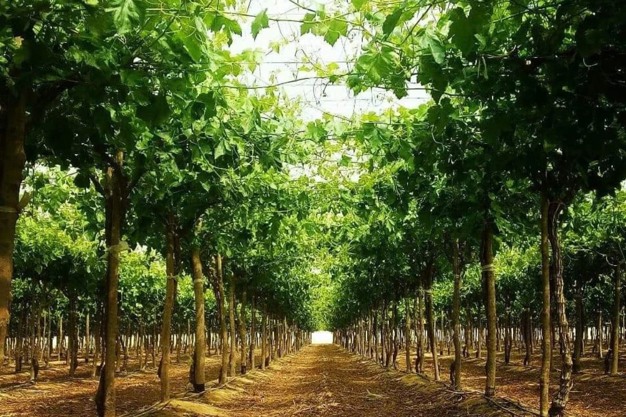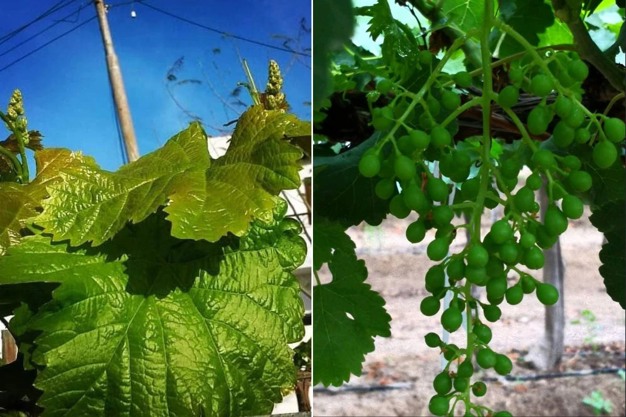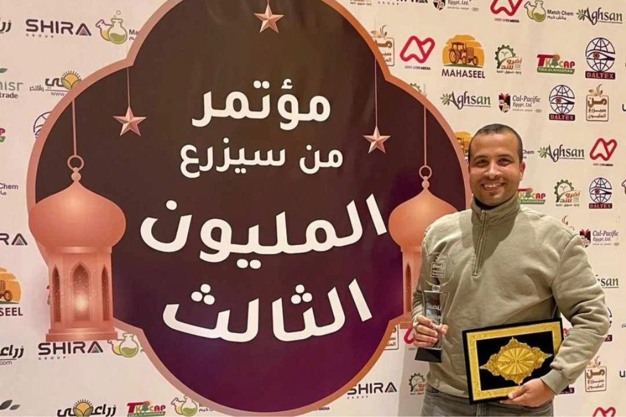Production conditions in Egypt, both agronomic and financial, have complicated the development phase of table grapes, announcing an eventful season, says Hesham Tantawi, nutrition expert and head of technical support and development at Green IAP.
Hesham explains: " We had optimal temperatures until recently, generally above 15 degrees. Suddenly, we've been confronted with lower-than-usual temperatures, which have affected the flowering phase and led to a drop in fertility and early abortions. Some varieties are more affected than others".

"This has also resulted in slower growth of the grapes, but it's yet early to know whether this will imply a late start to the campaign," says Hesham. " Regardless, even if some producers have an early harvest, in early May, the bulk of volumes are expected later than usual."
"It is a good thing to see time gaps between harvests by different producers, which bodes well for a balance in available volumes over the course of the season. However, Egypt's biggest competitive advantage is its early entry into the market and a one-month window without competition, particularly from the 2018 season until now. A late entry will translate into commercial difficulties," adds Hesham.
The economic context has also brought its share of challenges to the upcoming grape season. Hesham explains, "What has further complicated the situation is the frequent fluctuations in exchange rates. Business constraints have made technical decision-making, i.e. farming operations, much more difficult."

Egypt has faced a long period of depreciation of its pound against the US dollar, but the local currency has recently appreciated significantly. "The appreciation occurred just after table grapes growers imported agricultural inputs. The cost of production was therefore too high for the current USD rate. It will therefore be difficult to factor these costs into the export prices, and at the same time, price increases will be vital", explains Hesham.
"The cost of producing table grapes in Egypt has reached an all-time high of around EGP 500,000 per hectare, or double that of last year," notes the grower.
The Red Sea crisis is also casting a shadow over the sector, but Hesham remains confident. "We're seeing a lot of efforts to contain this crisis, which has lasted too long, and a progressive return to normal is settling in, hopefully before the start of the grape campaign."
Efforts are also being deployed in Egypt to resolve the problems encountered by the table grape sector last year, reports Hesham. "On the logistics front, a new Egyptian shipping company will soon be operational and will help avoid congestion in shipping to Europe, which will benefit the table grapes, a crop particularly sensitive to transit time."
"The government has also deployed new measures, backed by technical means, to audit potential shipments of pirated grape varieties. A complaints mechanism will also be at the disposal of seed companies, allowing them to activate audits of suspect surfaces."

Hesham concludes, In terms of varietal choice, we're also seeing big changes at the national level, with major shifts and a resurrection of certain varieties that had been overlooked. The big winners of these trends, in terms of acreage and volumes, will be Superior and Early Sweet varieties. We're also seeing rapid development in the raisin sector."
Hesham was this week awarded the prize for the 3rd edition of the "Million Acres" program, following a vote by peers and the program's scientific committee, in the "plant nutrition consultant" category. The program is sponsored by the private television channel "Al Hadath Alyaoum". Hesham says: "This award means a lot to me, and reinforces my commitment to working alongside Egyptian growers towards enhancing the Egyptian origin of table grapes"
For more information:
Hesham Tantawy
Green IAP
Tel: +201050505387
Email: [email protected]
